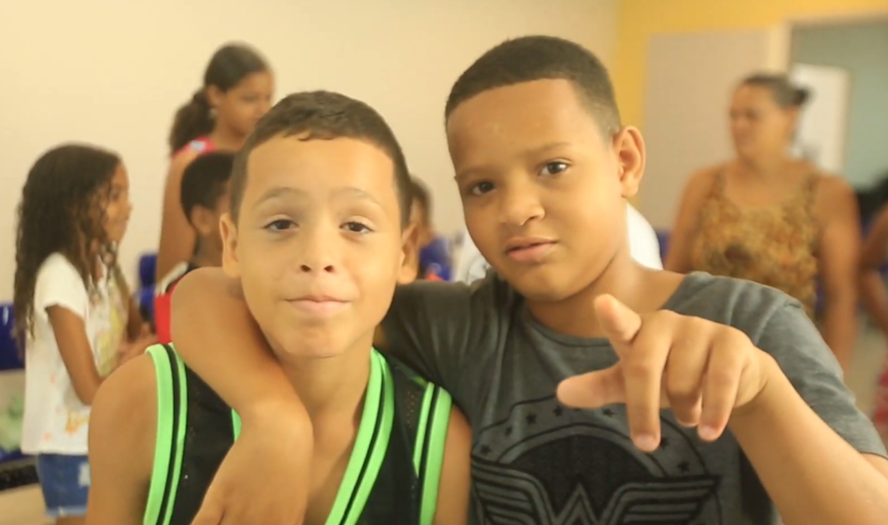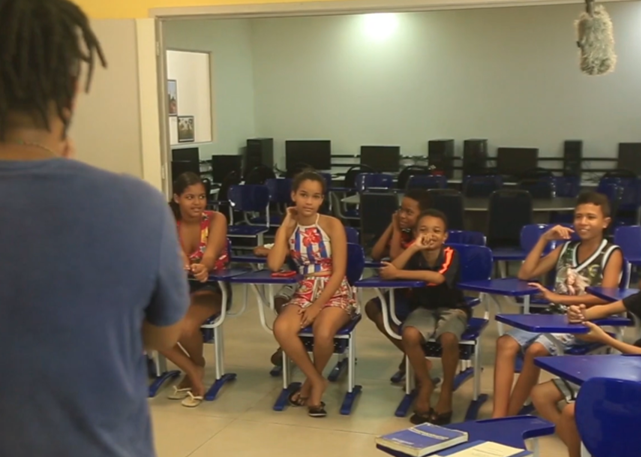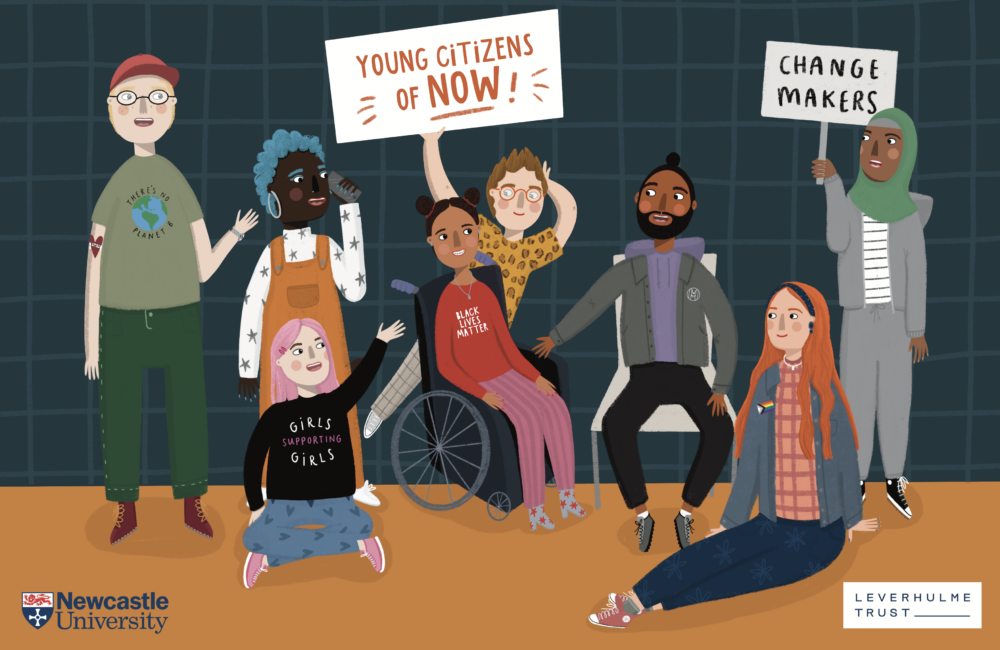UNIPeriferias (The University of the Peripheries), Maré, Rio de Janeiro, Brazil
Case study – UNIPeriferias (The University of the Peripheries), Maré, Rio de Janeiro, Brazil
Run by: Instituto Maria e João Aleixo (IMJA), Maré, Rio de Janeiro, Brazil

IMJA’s UNIperiferias (University of the Peripheries) challenges a city’s traditional way of structuring knowledge and knowledge production. The aim is to co-produce training, research and social action that values and helps to develop the expertise of community members as city change agents for social justice.
The case study was chosen because:
i) It deliberately shifts knowledge production around issues of urban socio-economic disadvantage away from city centre academics in universities to sites of learning situated in the areas themselves. UNIPeriferias sees learning opportunities as situated in and arising from urban communities, rather than prioritising professional knowledge from town or city centre institutions.
ii) UNIPeriferias rejects simplistic deficit discourses of urban peripheries and their communities. The organisation’s manifesto states that we need to recognise and value peripheries for the ways in which their everyday practices create and enrich the social fabric of the city and their powerful potential for the development of key policies and practices for more inclusive cities and economies.
What is UNIPeriferias?
IMJA deliberately established UNIPeriferias as a new type of institution of training, research, and social interventions that go beyond the traditional ways in which knowledge is structured – and valued.
Traditional knowledge production institutions, notably universities, are dominated by formal bureaucratic and administrative structures; by a certain hierarchy of knowledge and the rarity of studies and interventions that deal with issues that affect everyday life, in particular that of peripheral social groups such as the communities living in favelas such as the Maré.
UNIPeriferias is founded on a pedagogy of coexistence, meaning that it is essential for the inhabitants of a town or city to learn from one another in order to gain a greater understanding of, and respect for, all the diverse communities that make up a place. It is only by doing so that people can work collaboratively to build more inclusive places and economies.
UNIPeriferias recognises that there is a plurality of knowledge and education practices in the world. Their students are people who are not necessarily recognized by traditional academic organisations in terms of degrees, but who are responsible for producing vitally important and innovative concepts, methodologies and social technologies that contribute to improving the quality of life and expanding the range of rights of the residents of the Maré.
Rio de Janeiro Young People’s Project: The Kite Flyers of the Maré

Have you ever thought about the importance of kites for education for a fairer place?
In partnership with Dr. Deborah Ralls, from Newcastle University (UK), UNIperiferias carried out a kite making project that emphasises the potency of pipeiros (kite flyers) for peripheral regions.
The project encourages critical thinking on how recognising and celebrating the knowledge and skills of children and young people from the peripheries as valid and valuable is essential for their human rights and in the development of fairer cities.
The project recognises the cultural practice of children and young people flying kites, a traditional form of play, as an illustration of the power and potential of children and young people’s inventiveness on the outskirts of places in Brazil. Kite flyers are receiving and transmitting, at different levels, a complex culture that involves knowledge and practices from the peripheries.
UNIperiferias recognises the strengths and benefits of the culture of these (mainly urban) peripheral groups, groups often marked by social inequality and stigmatised by violence, as a way of highlighting the “paradigm of potency”.
In this way, this project recognises the lifestyle of the young kite flyers (as opposed to their living conditions) in the children and young people’s own terms, rather than comparing them with the standards of the traditionally dominant groups who tend to have the most power in the city.
Taking advantage of this traditional practice of kite flying in the favelas and outskirts of the country, the project uses kite flying as an instrument for children and young people to show their cognitive skills and critical thinking. In this way, a connection is built between diverse forms of knowledge, expanding the possibilities of a holistic education for adolescents and young people in Maré.
The Kite Flyers’ project shows how education for a fairer city has to recognise the existing skills and expertise that children and young people from areas like the favelas already practise in their everyday lives, such as ethno-mathematics; mathematics that belongs to other cultural groups such as the Kite Flyers of the Maré and yet this is a form of mathematics that remains unknown and so unacknowledged. It is vital to understand that mathematics and complex calculations do not only occur in school.
A founding concept of a peripheral epistemology proposed by Uniperiferias, the “paradigm of potency” aims to establish a world for all, a common world, albeit plural. In this sense, through kite-playing, mediated by History, Geometry and Arts workshops, we ask a group of children and young people from Maré about their perception of how much the “paradigm of potency” and other methodologies applied by Uniperiferias can help make their city a fairer place.
Organisation: UNIPeriferias, Rio de Janeiro, Brazil
Students: Arthur, Adriano, Anderson Cailane, Esther, Gabriel, Isabela, Jeferson, Lucas, Maik, Matheus, Peterson, Simone.
Teachers: Diego Marcelino, Pamela de Carvalho, Romildo Pio de Souza (Bidão), Elson Cabral de Lima, Nilson Francisco da Cruz (Careca)
Director: Alberto Aleixo de Souza
Production Assistants: Alan Furtado Rocha, Camila Castro F Nascimento
Audio Transcription: Didi Assis
Translation: Nicole Froio
Direction/production: Gustavo Andrade
Director of Photography: Lucas Cesário
Video
Overview of the city
“Rio de Janeiro is the capital of the State of Rio de Janeiro and the second-largest city of Brazil. Rio De Janeiro’s 2023 population is now estimated at 13,727,720. In 1950, the population of Rio De Janeiro was 3,026,195. Rio De Janeiro has grown by 93,446 in the last year, which represents a 0.69% annual change.” – World Population Review (2023)
A Solidarity Economy
“The solidarity economy is a Brazilian policy vision that has been refined over the past half century.The “solidarity economy,” has been developed in the form of local cooperativism and the world’s largest network of state-regulated community banks. The particular forms that these collectives assumed in Brazil were heavily influenced by the ideas of Austro-Brazilian economist Paul Singer.” – Paul Katz & Leandro Ferreira, Boston Review (2020)
Education and schooling in Rio de Janeiro
It is difficult to find up to date government information on education in Rio de Janeiro, perhaps due to changes in the Brazilian political administration political policy changes.
Education follows the same schooling stages in Rio as elsewhere in Brazil, beginning with daycare for infants aged 2-4. Preschool is for children between 4 and 6 years old, followed by Ensino Fundamental I and II (Fundamental Instruction), attended by students aged 6-14. Ensino Médio (high school), is aimed at those between 15 and 17, but in reality has a student body composed of pupils mostly aged between 15 and 19.
There is no strict national curriculum in Brazil; states are instead given national guidelines for what students should learn at each stage but are expected to incorporate “regional and local characteristics.”.

